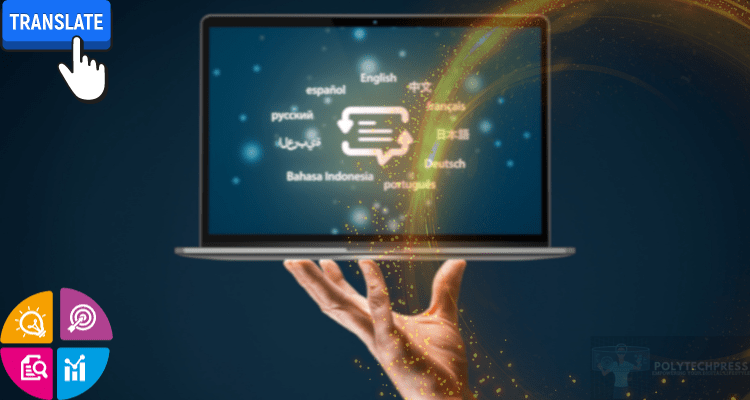The Power of Words: Translation Strategies for Business Success
Where business borders are increasingly becoming blurred, the power of words has never been more pronounced. As companies expand their reach beyond local confines, the need for clear and effective communication across different languages is paramount. This has placed a spotlight on translation tools for business as a cornerstone for international success. Additionally, addressing why translation is important for business is essential in understanding the need for meticulous translation strategies that facilitate global connectivity.
The Rising Need for Translation in Global Business

The world economy is increasingly interconnected. According to recent statistics, the volume of global trade reached over $20 trillion. Companies that once only operated domestically are now expanding worldwide.
Industry giants like Microsoft, Amazon, and Google rely heavily on translation to localize their products and services. A case study found that Amazon’s investments into translation technologies led to accelerated international growth. The ability to communicate with diverse demographics is key for global business success.
This is where translation tools come in. Powerful software can translate websites, documents, media, and other content into 100+ languages. Translation bridges language and cultural barriers that hinder cross-border business relationships. With real-time translation, companies can provide consistent messaging worldwide.
Translation Tools for Business: Basic

In the pursuit of international success, businesses must navigate the complexities of multiple languages – a task where translation tools have become indispensable.
Translation tools for businesses are applications or software solutions engineered to facilitate the translation of text or speech from one language to another. Their complexity varies, encompassing everything from straightforward online translation services to advanced software suites that offer machine translation (MT), translation memory (TM), and comprehensive terminology management systems.
The field has seen remarkable strides with the advent of AI-driven translation tools that continuously evolve, delivering translations of increasing accuracy and context sensitivity. The adoption of neural machine translation (NMT) has marked a pivotal advancement, yielding translations with unprecedented levels of fluency and coherence.
Integrating these translation tools into business infrastructures, including customer relationship management (CRM) systems and content management systems (CMS), significantly amplifies operational productivity. Such integrations enable direct, in-place translations within the native software systems, optimizing the workflow by negating the need for cumbersome transitions between disparate platforms.
Why is Translation Important for Business?

Transcending language barriers is crucial for global expansion. We’ll examine the multifaceted benefits of translation, from reaching broader audiences to maintaining legal compliance in foreign markets. The consequences of neglecting this aspect, highlighted by real-life business blunders, underscore its importance.
Overcoming Language Barriers
Translation enables businesses to market products and services to demographics they couldn’t reach before. Support and sales materials in local languages removes barriers for expansion.
Building Trust
Communicating with multilingual customers in their native language fosters trust and positive reception of a company. Translation conveys respect and commitment to new target markets.
Legal and Regulatory Compliance
Companies must adhere to country-specific regulations around data privacy, marketing, and consumer rights. Accurate translations ensure organizations stay compliant as they enter new regions.
Enhancing Clarity and Accuracy
Subtle linguistic and cultural nuances mean direct word-for-word translations often miscommunicate intended messages. Professional translations consider context to provide maximum clarity.
Mistranslations can be costly. A cultural blunder during a promotional tour cost Coca-Cola over $30 million in China. With proper translation, such missteps can be avoided.
Translation Strategies for Enhanced Communication

Conduct thorough market research to determine which regions offer the most growth potential. Focus translations on languages with the greatest business impact.
Translate content not just linguistically, but culturally. Localization helps content better resonate with audiences abroad. Maintain brand voice, style, and tone across all translations. Though wording changes, messaging stays aligned.
Balance automation with professional translators. Machines translate high volumes of simple text quickly. Human experts ensure precision for complex content.
By focusing on these core aspects, Kenaz Translations (link) stands out as a prime example of what businesses should seek in a translation service provider, helping companies navigate the complexities of international expansion with ease and precision.
Implementation of Translation Tools in Business Operations

The successful implementation of translation tools requires thoughtful integration into business operations. This includes staff training, monitoring usage efficacy, and continuously refining the translation process to meet dynamic international market demands.
Train Staff
Educate team members on utilizing translation tools in daily operations. Create style guides for consistent regional communication.
Monitor Impact
Track metrics like website traffic, ad engagement, and sales per market pre and post-translation. Continuously refine based on data.
Improve Strategies
Use analytics to identify poorly performing content. Fix with localization improvements. Expand high-performing languages.
Future Trends in Translation for Business
Advancements in artificial intelligence, including chatbots and voice recognition, will expand the capabilities of translation tools. Shorter turnaround times and enhanced quality will enable more nuanced multilingual business interactions.
As global connectivity increases, the demand for translation technology will continue rising. Companies should increasingly view translation as a core component of business operations.
Final Words
In today’s globalized marketplace, translation tools help businesses thrive across borders. Strategic implementation creates engagement opportunities with new international audiences.
With the right technologies, translation processes can be scaled cost-effectively without sacrificing quality. To stand out globally, businesses must incorporate translation into their long-term strategy.
The power of words is universal. With effective translation, companies can achieve success worldwide by conveying unified messaging tailored uniquely to each culture.






